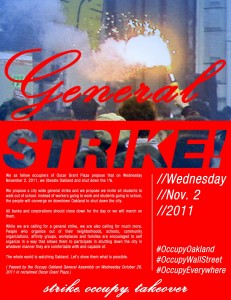

Printing Office, and said to Gonzi: “The remission of the Large envelope the workbooks of the labourers who worked in the Union The Archbishop told Kingswell what he intended to do, he took from a Told him he knew in advance why Archbishop Gonzi would send for him, Other things, that at the time of the Interdict he had sent the –Īrchbishop Gonzi – after him where he was told that he was going to Tony became General Secretary, Kingswell had told him, among many Had with former General Secretary Joe Attard Kingswell, shortly after Zarb, former General Secretary, tells us that at the first meeting he National Council and members of various GWU section boards were This was a black episodeįor the Maltese Church and for Malta where many people of the Labourįaith had to go through a complete ordeal. The Labour Party from being in government.
Maltese Church led by Archbishop Mikiel Gonzi. Theįew days ago, the 60th anniversary of the Interdict was issued by the The Pensioners’ Association calls for this anniversary to be commemorated every year. The Pensioners Association salutes that these heroes are both those who are now dead and those who are still alive and who are now pensioners for the courage they showed. Took place and this memorial was erected to commemorate this gloriousĮvent for the GWU and the workers which was a black day for others. This was one of the places where the riots GWU it was not, because on that day the worker showed his strength,Īnd it was the beginning of the liberation from the chains of theĬommemorate the strike of 28 April and especially all those who wereĪrrested and jailed, the GWU unveiled a memorial at Paola Square on That 28 April 1958 was a black day for Malta. Strike led to the arrest of many workers and officers, but not only,įor a number of them were also thrown into prison. Would unite the Queen, but the workers were not afraid of the wrath Workers faced the wrath of the police who at this time said that they That their time in Malta was about to begin. Workers were determined to send a clear message to the British rulers The GWU and even with the help of the Labour Party. Was a day when the workers dominated the day under the leadership of Who without fear and with great militancy in them, took to the It was the workers and many young people who showed a determination,
#General strike day full
It looked from early morning as if the workers would answer the GWU’sĬall in full force, and that when the country awoke as if paralysed. It was the National Council of the GWU that decided at a meeting on 25 April 1958 that the GWU should call a general strike three days later for 28 April. The next few days will mark the 63rd anniversary of the General Strike of April 28, 1958. Disciplinary Corps, Security and Law Enforcement Officials.The International Section of the General Workers’ Union.Technology, Electronics and Communication.Technology, Electronics & Communication.Disciplinary Corps, Security, Law Enforcement Officials.International services, such as Eurostar, were unaffected. On Tuesday, there were delays and cancellations at several French airports, including Paris-Orly, Lyon, Marseille, Nice, Toulouse, Bordeaux and Nantes.īut France's state-owned railway operator SNCF said its services would only be "very lightly affected", with 9 out of 10 national trains running. In Paris, the region's transport operator RATP said services would run as normal. There were also fuel shortages after unions blocked access to refineries. Bin collectors in Paris also initiated a strike, which saw the streets of the capital overflowing with rubbish. The transport sector in particular suffered, with trains and flights cancelled.

No future strike dates have yet been announced.Īs well as dwindling numbers of people at the protests on Tuesday, the strikes also had less impact.īetween January and May of this year - especially in March - France saw widespread strike action in a number of sectors as unions battled the reforms, which will see the pension age rise from 62 to 64. Nevertheless, it is unclear whether there will be further strikes. Unions involved in the protests are set to hold a conference to discuss the future on June 13. The head of the CFDT union, Laurent Berger, is one of the highest-profile figures to have suggested that the protests are now over. He told FranceInfo that “the match is ending” and that “this will be the last demonstration against the retirement reforms, in this format”.īut Jean-Luc Mélénchon, leader of the far-left La France Insoumise party, pledged the “fight will continue”, while secretary-general of the CGT, Sophie Binet, said: “Nothing will be the same if they decide to maintain this reform.”


 0 kommentar(er)
0 kommentar(er)
